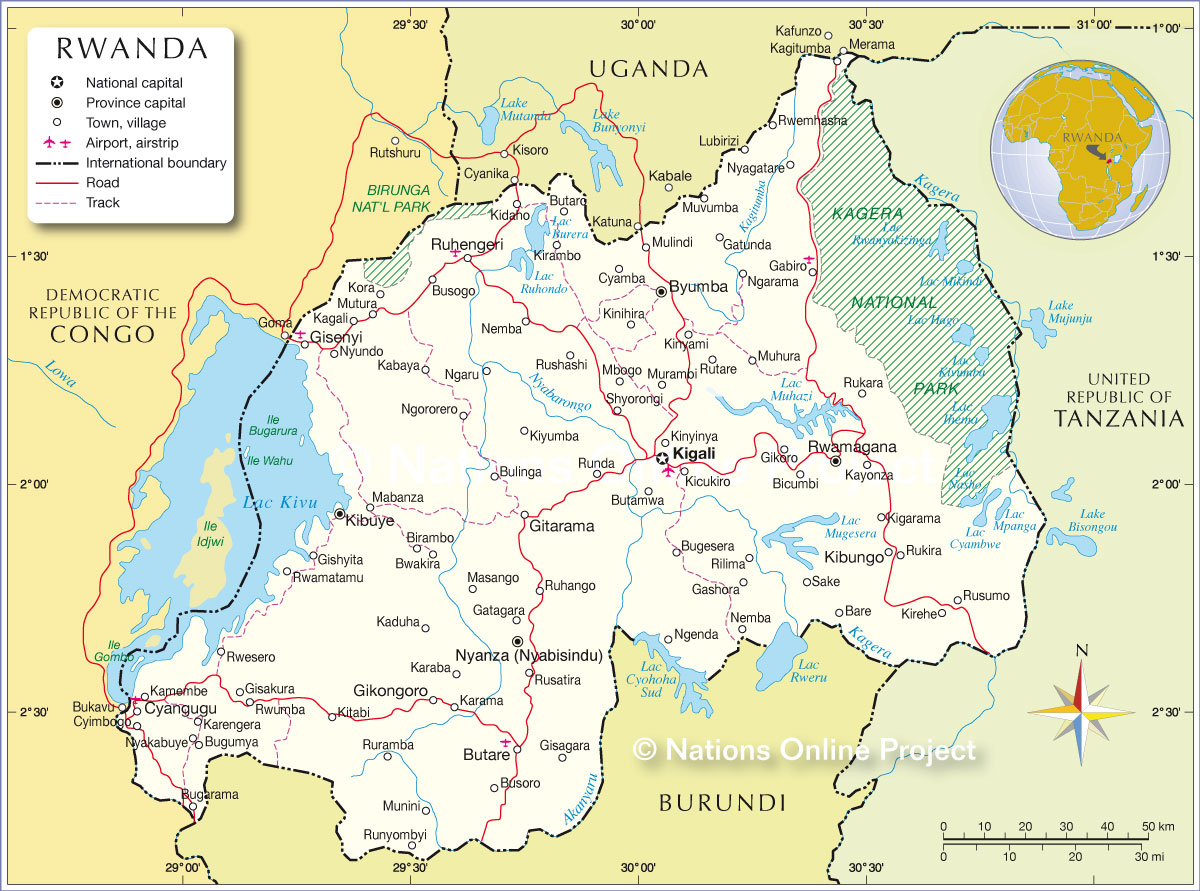Rwanda is one of the most densely populated countries in Africa. The population is predominantly rural, with a steady increase in urbanization. There are three groups living in Rwanda – Hutu (84%), Tutsi (15%), and Twa (1%). The Twa pygmies were the original inhabitants of Rwanda. The majority of Rwandans are Christian, but small numbers are also Muslim or have traditional beliefs. Kinyarwanda, English and French are the three official languages.
The country relies heavily on the agricultural sector which accounts for a third of Rwanda’s GDP and employs about 80% of the total population. Rwanda also imports all of its oil products, which fuels 39% of the country’s electricity generation. The economy is thus vulnerable to negative external shocks from increases in global oil prices.
Economic growth has been somewhat higher in Rwanda than in the other member states of the East African Community (EAC), primarily because Rwanda receives larger sums of foreign aid, far above average. The development of industry, foreign direct investment (FDI) and tradable non-state services has remained below expectations. The national economy was in the last two decades guided by the long-term strategy, “Vision 2020,” which set the goal to transform Rwanda into a middle-income country and an East African hub with modernized agriculture, knowledge-based industry and services. So far, the country has performed well in education, health care and curbing population growth. The mining sector is being reorganized, but production is still low.
The Rwandan government was in the middle of an economic boom prior to the COVID-19 outbreak in early March 2020. In 2019, economic growth exceeded 10%, driven mainly by large public investments in implementation of the national strategy of transformation. Strong economic growth was expected in 2020, but this was affected by the outbreak of the pandemic. Rwanda has made tremendous progress in economic growth and poverty reduction.
Tourism has been the fastest growing sector in Rwanda due to the fact that Rwanda is considered the safest and most stable in this part of Africa. The roads are paved, the landscapes are beautiful, and the people are friendly which further facilitates this growth.
Security Issues:
Rwanda has transformed into one of Africa’s most peaceful countries after its notorious genocide in the 1990s. It has enjoyed robust economic growth over the past decade while avoiding renewed ethnic strife between the majority-Hutu population and majority Hutus.
Conflict risks are limited in Rwanda, although border regions with the Democratic Republic of Congo (DRC) have been prone to spill-over of ethnic conflict and escalations of cross-border tensions. There is a small terrorist threat in the country, with occasional grenade attacks directed against Rwandan civilian, military and government targets, although these have become rare in recent years. Crime rates are low by regional standards, with the main threat gearing from non-violent opportunistic theft. Civil unrest is rare, and most demonstrations tend to be peaceful, with most recorded demonstrations being linked to the 1994 genocide.
Verdict:
Rwanda continues to enjoy political stability and general security, low levels of corruption with liberal legal frameworks in place. The ruling Rwanda Patriotic Front Party continues to dominate the country with robust authority and tight control over civil society.
These factors along with Rwanda’s weak opposition indicate that significant political and social unrest remains unlikely in the foreseeable future. The president and the circle of his top aides stand for an authoritarian developmental state. The ruling team is kept together by unquestioning loyalty and discipline in the tradition of the rebel movement, with which they once gained power. Defectors are not tolerated. There is generally very little room for power-sharing, an independent and vital civil society and freedom of expression.
Rwanda, nonetheless, is a beautiful country for tourism with stunning scenery and warmth as well as investment.
